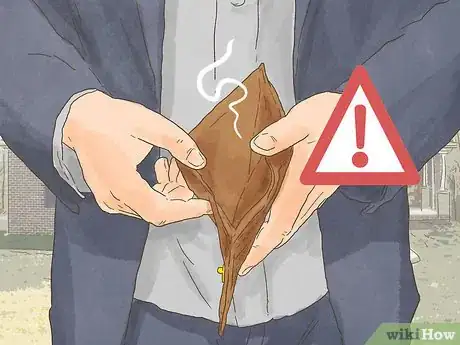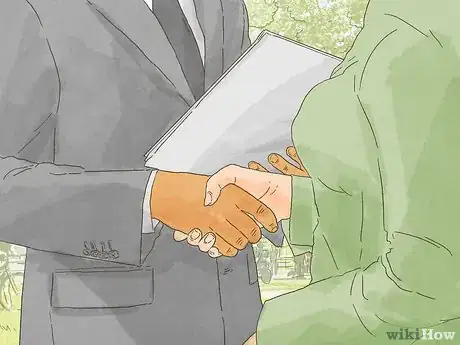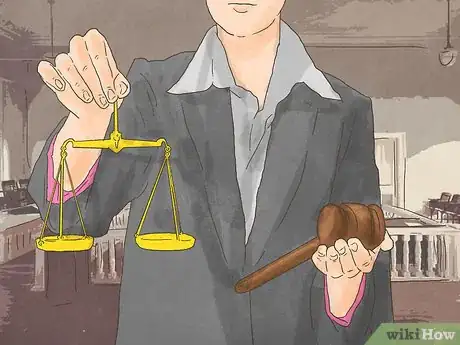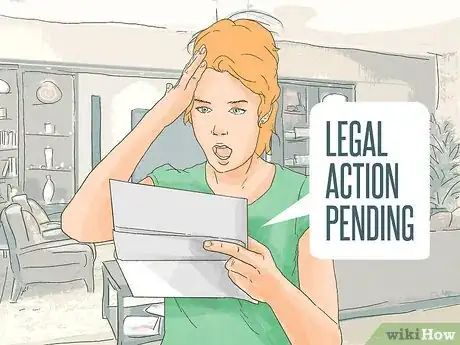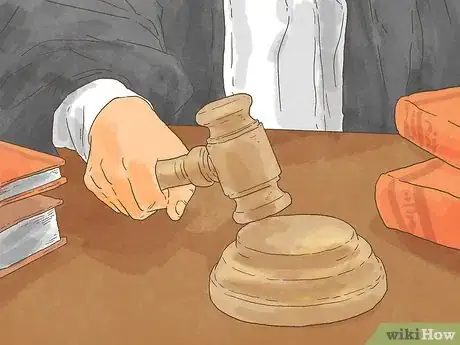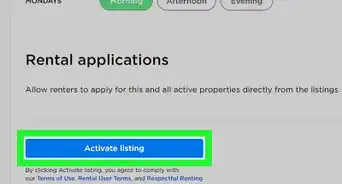This article was co-authored by Michael R. Lewis. Michael R. Lewis is a retired corporate executive, entrepreneur, and investment advisor in Texas. He has over 40 years of experience in business and finance, including as a Vice President for Blue Cross Blue Shield of Texas. He has a BBA in Industrial Management from the University of Texas at Austin.
This article has been viewed 44,340 times.
Selling a house when you share ownership can be as easy or hard as any one owner wants to make it. There are three different types of common (or concurrent) ownership, and each has different rules for how a sale can be conducted. They also have different consequences when a sale is completed. Luckily, if you are interested in selling your share in a property you own in common, there is very little that another co-owner can do to stop you. You can even force the sale of the entire property. Whether you force the sale or you work with the other owners to sell the house amicably, there are certain pitfalls and procedures you need to be aware of if you want to conduct a successful sale.
Steps
-
1Find a buyer and walk away. If you and the co-owners of the house are "tenants in common," you don't have to do anything special to sell your share of the home. As long as you can find someone willing to purchase your share, you can execute the transfer and be done with it. [1]
- Tenancy in common is the most popular type of concurrent ownership. Under a tenancy in common, all of the parties own an equal and undivided portion of the property. So one person doesn’t own the left side of the house and the other the right. Instead, they share the whole property equally.
- Each of the owners may sell, will, or transfer their share (or part of their share) to another party. The sale of a portion of the property does not affect the rights of the other owners.
-
2Consider the consequences to the other owners. Under another type of concurrent ownership, a "joint tenancy," if a co-owner sells his/her share of the property, the sale destroys the joint tenancy, creating a tenancy in common. [2]
- In joint tenancy, if a tenant dies, his/her share of the property is automatically conferred on the survivors, irrespective of what a will might say.
- If a joint tenancy is destroyed, this can have far-reaching consequences.
- Imagine that a married couple, Otis and Ada, own a second home under a joint tenancy. Otis is deeply in debt, and worries his creditors will seize his second home, so he sells it to his son Elmer for a nominal price. When Otis's finances improve, he buys his share of the house back from Elmer. Shortly after they complete the resale, Elmer becomes estranged from the family. Otis dies without reconciling with Elmer. Even though Otis thought he had a joint tenancy, it was destroyed when he sold his share to Elmer, even though he bought back his share. So instead of Ada having full possession of the house, Elmer can take her to probate court to demand his inheritance--Otis's share of the house--because Otis didn't address it in his will, thinking he had a joint tenancy with Ada.
Advertisement -
3Dissolve your marriage. If you want to sell your share in a house you own with your estranged wife, you may not be able to if the two of you own it as "tenants in entirety." [3]
- Tenancy in entirety is used less frequently than tenancy in common or joint tenancy and occurs only with married couples. Both parties own the entire property, not just a share. They may not sell or transfer the property to anyone else without the consent of the other, at which point the tenancy in entirety terminates. Should the marriage end in divorce or death, the tenancy ends and the house becomes the undivided property of the surviving spouse.
Negotiating a Sale with the Co-Owners
-
1Determine a sale price. Concurrent owners should decide on an asking price before anything else. The failure to agree on whether to accept a buyer’s offer is the most common reason for joint-property sales to fall through.
- It's great if you and your co-owners can come to a quick agreement on an asking price, but if you find this to be a sticking point, get an appraisal. This will give you an objective starting point for negotiations, which should make it easier to come to an agreement with a buyer.
- Settle on a price range, which would include the ideal selling price and the lowest acceptable price. Then establish a schedule for lowering the price. You can prepare to drop your asking price a little if the home doesn't sell in a pre-determined length of time.
-
2Apportion costs among the owners. Before you put the home on the market, work out with the other owners how costs will be shared. You should take into account the costs of inspections, escrow, agent’s commission, and especially repairs.
- Remember to account for repairs that the buyer may request as well as repairs you undertake before putting the house on the market.
-
3Consider assigning power-of-attorney to one of the owners. If the property owners are widely separated geographically, consider granting power of attorney to an owner near the property so that they can quickly make decisions about the sale such as accepting an offer.
- Be very cautious about this. If you don’t trust the other owners to make a proper decision, don’t sign your rights over to them.
-
4Prepare for the possibility that one owner won’t have the cash to pay their share of the expenses. While it isn’t ideal, you should plan for this contingency. The scope of repairs a buyer may ask for could be too large for one owner to afford. It’s best to have a plan in place beforehand so that you'll know how one owner would be expected to compensate the others in the event of a shortfall.
-
5Choose an agent. Hire an experienced and capable real estate agent with whom everyone in the group feels comfortable. Since you’ll be signing a contract with the agent, make sure you base your decision on factors likely to benefit you and not merely the agent. [4]
- For example, don’t pick an agent based on friendship or familial relationship. Choose an agent with a track record of success in your locality. Find out more at Select a Realtor.
-
6Make sure all the owners are at the closing. Since the property is owned in common, the sale won’t be valid until all of the owners have signed the sale contract. If it isn't possible for all the owners to be present, the ones who are absent will have to assign power of attorney to another owner.
Forcing a Partition
-
1Try mediation. Sometimes co-owners hit an insurmountable obstacle in trying to sell their property and want to take legal action against one another. Before you do that, however, make sure you’ve exhausted all other options. In most cases your co-owners are family members or friends. A legal battle to force a "partition" (division of the property) can poison relationship for years to come, so explore the alternatives first.
-
2Attempt to sell your share. While you should make every attempt to negotiate with the other owners, there are other ways you can avoid taking them to court. For example, even if mediation is unsuccessful, you can attempt to sell your interest in the home to the other owners or a third party. [5]
- Be aware that a third party can also force a partition. While you wouldn't be involved, there might still be some hard feelings aimed at you.
-
3Seek legal counsel. At this stage things may take a turn toward the courtroom. As in any legal proceeding, you should seek the advice of an attorney at the earliest possible stage. Since you haven’t yet initiated a lawsuit but you’ve decided to pursue a legal remedy, you should speak with an attorney experienced in real estate law at this point. [6]
-
4Petition the court for a partition. If you can’t sell your share to another owner or a third party, and efforts at mediation have come to naught, you can force a partition of the property. As long as you hold a tenancy in common or a joint tenancy, a partition is an absolute legal right. As long as you can prove ownership, the court will almost certainly grant your request.[7]
- The Petition for a Partition (or Complaint for Partition) is a legal document. You’ll file it at the clerk of court’s office in the same county where the property is located. The document should contain the address and a description of the home, a list of the other owners and their respective shares, and a statement of facts explaining why you are entitled to a partition. The latter doesn’t have to be anything more than your claim on the deed and the unwillingness of the other owners to sell the home.
-
5File a notice of "lis pendens." Lis pendens is a Latin term that means “lawsuit pending.” It serves as notice that legal action relating to real estate is imminent. While most private citizens don’t keep track of lis pendens, banks and creditors do, and it serves notice of the petition to any creditors who may have an interest in the property. [8]
- In most jurisdictions you’ll file a notice of lis pendens at the county land-records office. Most states have sample forms online, so use a search engine to locate one.
-
6Serve the other owners. Your next step is to serve the other owners (the defendants in this action) with a copy of your Petition. You must have a neutral third party conduct the service of process. It’s usually best to hire a process server or the local sheriff’s office to conduct the service. If you’d like to know more about serving court papers, read Serve Court Papers.
- The defendants will have a period of time (usually a month) to respond to your Petition with an Answer. Once the Answer is filed with the court, the judge will set a trial date. In the meantime, both sides will engage in discovery just as they would in any civil case. Discovery is the stage of a lawsuit when the opposing sides find out what evidence the other side has. Discovery is a complex process with many rules. If you have not yet retained an attorney, you should do so now.[9] [10]
- If the house in question is a rental property, the court may appoint a referee to collect rent and manage the property while it is in dispute.
-
7Go to trial. Finally, you and the other co-owners will meet at trial. As long as you can each prove you have legitimate title to the property, the court will order a partition, and the house will be sold. However, just because the house sells doesn’t mean that you’ll get everything you want. If the defendants can prove financial liability on your part—such as embezzling rent, owing debts to the other owners, or willful damage to the property—your share will be reduced accordingly.[11]
Expert Q&A
-
QuestionIf one owner of two signs a Texas residential estate listing agreement and now the second owner refuses to sell the house, does the agreement signed by the first owner become null and void with the realtor?
 Michael R. LewisMichael R. Lewis is a retired corporate executive, entrepreneur, and investment advisor in Texas. He has over 40 years of experience in business and finance, including as a Vice President for Blue Cross Blue Shield of Texas. He has a BBA in Industrial Management from the University of Texas at Austin.
Michael R. LewisMichael R. Lewis is a retired corporate executive, entrepreneur, and investment advisor in Texas. He has over 40 years of experience in business and finance, including as a Vice President for Blue Cross Blue Shield of Texas. He has a BBA in Industrial Management from the University of Texas at Austin.
Business Advisor Whether the agreement with the realtor remains in effect or is terminated depends upon the specific language in the listing agreement. An owner can only sell what he/she owns, i.e. their interest. Unless the real estate has been partitioned by a court order, the sale of the house cannot occur without the agreement of both owners. However, the owner wishing to sell can sell his/her interest in the house, though not the house itself.
Whether the agreement with the realtor remains in effect or is terminated depends upon the specific language in the listing agreement. An owner can only sell what he/she owns, i.e. their interest. Unless the real estate has been partitioned by a court order, the sale of the house cannot occur without the agreement of both owners. However, the owner wishing to sell can sell his/her interest in the house, though not the house itself.
References
- ↑ http://www.wvu.edu/~lawfac/cchin/Overview.html
- ↑ http://www.wvu.edu/~lawfac/cchin/Overview.html
- ↑ http://www.wvu.edu/~lawfac/cchin/Overview.html
- ↑ http://www.bankrate.com/finance/real-estate/7-tips-for-picking-a-real-estate-agent-1.aspx
- ↑ http://info.legalzoom.com/out-inherited-property-held-tenantsincommon-22862.html
- ↑ http://www.partitionaction.com/partition-by-sale/partition-lawyers/
- ↑ http://www.aoausa.com/magazine/?p=2411
- ↑ http://www.aoausa.com/magazine/?p=2411
- ↑ http://www.aoausa.com/magazine/?p=2411






